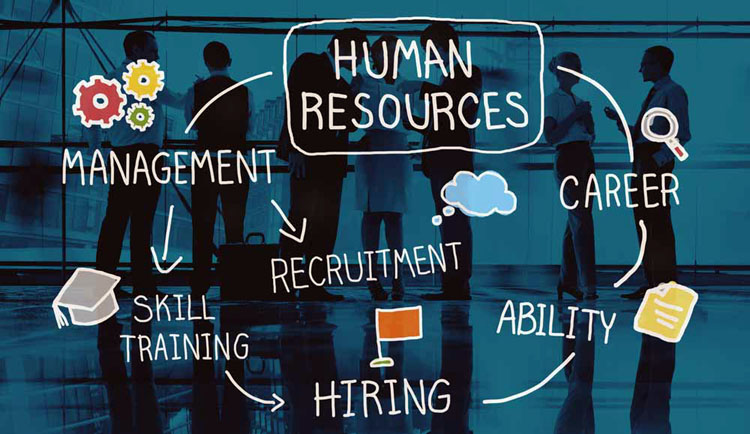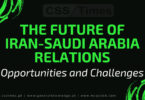Role of Human Resource Management in Organizational Performance
What is Human Resource Management?
Human Resource Management (HRM) is the function within an organization that focuses on the recruitment of management and providing direction for the people who work in an organization.
The HRM department members provide the knowledge, necessary tools, training, administrative services, coaching, legal & management advice and talent management oversight that the rest of the organization needs for successful operation.
HRM functions are also performed by line managers who are directly responsible for the engagement, contribution and productivity of their reporting staff members. In a fully integrated talent management system the managers play a significant role in and take ownership responsibility for the recruitment process. They are also responsible for the ongoing development of and retention of superior employees
Organizations also perform HRM functions and tasks by outsourcing various components to outside suppliers and vendors. The tasks those are most frequently outsourced take HR time and energy away from the HR activities that provide the most strategic value to the company. This outsourcing most frequently involves payroll functions but vendors and external consultants can help an organization with HRM in many ways. Specifically, many HR departments outsource background checking, benefits administration, training such as sexual harassment training, temporary staffing, employee handbooks, policy manuals and affirmative action plans.
HR practitioners in a small business who have well-rounded expertise provide a number of services to employees. The areas in which HR maintains control can enhance employees’ perception of HR throughout the workforce when they believe HR considers employees to be its internal customers and renders services with that in mind.
HRM’s Changing Focus: | Human Resource Management
HRM is the organizational function that deals with or provides leadership and advice for dealing with all issues related to the people in an organization. HRM, as such, deals with compensation, hiring, performance management, organization development, safety, wellness, benefits, employee motivation, communication, administration and training.
HRM is also a strategic and comprehensive approach to managing people the workplace culture and environment. Effective HRM enables employees to contribute effectively and productively to the overall company direction and the accomplishment of the organization’s goals and objectives.
HRM is moving away from traditional personnel, administration and transactional roles which are increasingly outsourced. The HRM function is now expected to add value to the strategic utilization of employees and to ensure that employee programs recommended and implemented impact the business in positive measurable ways.
Gone are the days when HR staff received direction from the executive team as to their priorities and needs. HR is now expected to sit at the executive table and recommend processes, approaches and business solutions that improve the ability of the organization’s people to effectively contribute.
Read also: The Future of Pakistan’s Defence System: Prospects and Challenges
The new role of HRM involves strategic direction and HRM metrics and measurements to demonstrate their value. Employees who work in HRM must demonstrate their value by keeping their employer and company safe from lawsuits and the resulting workplace chaos. They must perform a balancing act to serve all of an organization’s stakeholders: customers, executives, owners, managers, employees and stockholders.
It is difficult to underestimate the importance of an effective modern HRM function within an organization. An employee who retired from HRM twenty years ago would not recognize the competence and capability of the best HRM organizations today. You can choose to move your HRM function out of the dark days and into the light. Organizations that do – are best served.
Some industry commentators call the Human Resources function the last bastion of bureaucracy. Traditionally the role of the Human Resource professional in many organizations has been to serve as the systematizing and policing arm of executive management. Their role was more closely aligned with personnel and administration functions that were viewed by the organization as paperwork.
When you consider that the initial HR function in many companies comes out of the administration or finance department because hiring employees, paying employees and dealing with benefits were the organization’s first HR needs, this is not surprising.
In this role, the HR professional served executive agendas well but was frequently viewed as a road block by much of the rest of the organization.
An organization cannot build a good team of working professionals without good Human Resource management. The key functions of the Human Resources Management (HRM) team include recruiting people, training them, performance appraisals, motivating employees as well as workplace communication, workplace safety and much more. The beneficial effects of these functions are discussed here:
Recruitment and Training: | Human Resource Management
This is one of the major responsibilities of the human resource team. The HR managers come up with plans and strategies for hiring the right kind of people. They design the criteria which is best suited for a specific job description. Their other tasks related to recruitment include formulating the obligations of an employee and the scope of tasks assigned to him or her. Based on these two factors, the contract of an employee with the company is prepared. When needed they also provide training to the employees according to the requirements of the organization? Thus the staff members get the opportunity to sharpen their existing skills or develop specialized skills which in turn will help them to take up some new roles.
Performance Appraisals: | Human Resource Management
HRM encourages the people working in an organization to work according to their potential and gives them suggestions that can help them to bring about improvement in it. The team communicates with the staff individually from time to time and provides all the necessary information regarding their performances and also defines their respective roles. This is beneficial as it enables them to form an outline of their anticipated goals in much clearer terms and thereby, helps them execute the goals with best possible efforts. Performance appraisals, when taken on a regular basis motivate the employees.
Maintaining Work Atmosphere: | Human Resource Management
This is a vital aspect of HRM because the performance of an individual in an organization is largely driven by the work atmosphere or work culture that prevails at the workplace. A good working condition is one of the benefits that the employees can expect from an efficient human resource team. A safe clean and healthy environment can bring out the best in an employee. A friendly atmosphere gives the staff members’ job satisfaction as well.
Managing Disputes: | Human Resource Management
In an organization, there are several issues on which disputes may arise between the employees and the employers. You can say conflicts are almost inevitable. In such a scenario, it is the human resource department which acts as a consultant and mediator to sort out those issues in an effective manner. They first hear the grievances of the employees then they come up with suitable solutions to sort them out. In other words, they take timely action and prevent things from going out of hands.
Developing Public Relations: | Human Resource Management
The responsibility of establishing good public relations lies with the HRM to a great extent. They organize business meetings, seminars and various official gatherings on behalf of the company in order to build up relationships with other business sectors. Sometimes, the HR department plays an active role in preparing the business and marketing plans for the organization too.
Any organization without a proper setup for HRM is bound to suffer from serious problems while managing its regular activities. For this reason, today, companies must put a lot of effort and energy into setting up a strong and effective HRM.
Strategy: | Human Resource Management
HR improves the company’s bottom line with its knowledge of how human capital affects organizational success. Leaders with expertise in HR strategic management participate in corporate decision-making that underlies current staffing assessments and projections for future workforce needs based on business demand.
Compensation: | Human Resource Management
HR compensation specialists develop realistic compensation structures those set company wages competitive with other businesses in the area in the same industry or companies competing for employees with similar skills. They conduct extensive wage and salary surveys to maintain compensation costs in line with the organization’s current financial status and projected revenue.
Check also: Pakistan Affairs MCQs
Benefits: | Human Resource Management
Benefits specialists can reduce the company’s costs associated with turnover, attrition and hiring replacement workers. They are important to the organization because they have the skills and expertise necessary to negotiate group benefit packages for employees within the organization’s budget and consistent with economic conditions. They also are familiar with employee benefits most likely to attract and retain workers. This can reduce the company’s costs associated with turnover, attrition and hiring replacement workers. | Human Resource Management
Safety: | Human Resource Management
Employers have an obligation to provide safe working conditions. Workplace safety and risk management specialists from the HR area manage compliance with U.S. Occupational Safety and Health Administration regulations through maintaining accurate work logs / records developing programs that reduce the number of workplace injuries and fatalities. Workplace safety specialists also engage employees in promoting awareness and safe handling of dangerous equipment and hazardous chemicals.
Liability: | Human Resource Management
HR employee relations specialists minimize the organization’s exposure and liability related to allegations of unfair employment practices. They identify, investigate and resolve workplace issues that left unattended could spiral out of control and embroil the organization in legal matters pertaining to federal anti-discrimination and harassment laws.
Training and Development: | Human Resource Management
HR training and development specialists coordinate new employee orientation an essential step in forging a strong employer-employee relationship. The training and development area of HR also provides training that supports the company’s fair employment practices and employee development to prepare aspiring leaders for supervisory and management roles.
Employee Satisfaction: | Human Resource Management
Employee relations specialists in HR help the organization achieve high performance, morale and satisfaction levels throughout the workforce by creating ways to strengthen the employer-employee relationship. They administer employee opinion surveys, conduct focus groups and seek employee input regarding job satisfaction and ways the employer can sustain good working relationships.
Recruitment: | Human Resource Management
HR recruiters manage the employment process from screening resumes to scheduling interviews to processing new employees. Typically, they determine the most effective methods for recruiting applicants, including assessing which applicant tracking systems are best suited for the organization’s needs.
Selection: | Human Resource Management
HR professionals work closely with hiring managers to effect good hiring decisions according to the organization’s workforce needs. They provide guidance to managers who aren’t familiar with HR or standard hiring processes to ensure that the company extends offers to suitable candidates.
Compliance: | Human Resource Management
HR workers ensure that the organization complies with federal state employment laws. They complete paperwork necessary for documenting that the company’s employees are eligible to work in the U.S. They also monitor compliance with applicable laws for organizations that receive federal or state government contracts through maintaining applicant flow logs written affirmative action plans and disparate impact analyses.







